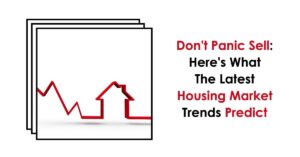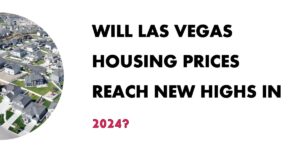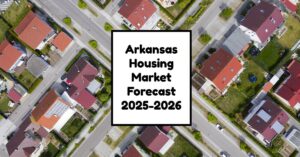The U.S. housing market is nearing a staggering $50 trillion in value, reflecting a remarkable growth in home prices and the number of metropolitan areas boasting trillion-dollar valuations.
According to Redfin, as of August 2024, the total value of American homes has surged to $49.6 trillion, a gain of $3.1 trillion over the past year, and this figure is set to cross the $50 trillion mark within the next twelve months.
This robust performance stems from ongoing demand that continues to outstrip supply, making it an exciting yet challenging time in the real estate sector.
U.S. Housing Market Now Nears $50 Trillion
The Rise of Trillion-Dollar Metros
One noteworthy trend is the doubling of metropolitan areas with home values exceeding $1 trillion. Now, there are eight cities reaching this exceptional mark, including:
- New York
- Los Angeles
- Atlanta
- Boston
- Anaheim, CA
- Chicago, IL
- Phoenix, AZ
- Washington, DC
The addition of cities like Anaheim, Chicago, and Washington, D.C. signals a considerable expansion in the real estate landscape, shifting where high-value markets are concentrated. Recent data indicates that Anaheim has seen its home value rise to $1.1 trillion, emphasizing its burgeoning market strength (Redfin).
Substantial Yearly Growth
The overall home value in the U.S. witnessed a 6.6% year-over-year increase, demonstrating a significant rebound from previous economic fluctuations. Looking further back, home values have surged by nearly 120% over the last decade, having climbed from $22.7 trillion in June 2014 to its current standing.
Key observations include:
- New Jersey metropolitan areas near New York City are among the fastest-growing regions, with property values in New Brunswick, NJ up by 13.3% and Newark, NJ increasing by 13.2%.
- Despite struggles in some Sun Belt cities, the overall demand remains high as potential buyers compete over a limited inventory of homes.
Low Inventory Fuels Demand
A critical factor behind the recent uptick in home prices is the persistent low inventory levels since the onset of the COVID-19 pandemic. Many current homeowners are hesitant to sell, often because they have secured low mortgage rates that are hard to replicate in the current market environment.
Economists like Chen Zhao from Redfin emphasize that while mortgage rates are beginning to drop, both potential sellers and buyers are often waiting for more favorable conditions., This sluggish movement keeps prices on an upward trajectory, providing substantial equity for existing homeowners but making it increasingly challenging for first-time buyers.
Diverse Growth Across Regions and Demographics
The housing market's growth is not homogenous; it varies significantly across regions and demographic segments. For instance:
- Rural home values have ballooned at a faster rate than urban counterparts, climbing 7% year over year, reaching a total value of $7.8 trillion.
- Suburban home values have surpassed $30 trillion for the first time, demonstrating an increase of 6.8%.
Moreover, home values owned by the millennial demographic have risen dramatically, increasing by 21.5% to $8.6 trillion. This escalation can be attributed to both price growth and the increasing participation of millennials in the housing market, where they now constitute a significant share of homebuyers.
- Baby Boomers saw their home values rise by 6.1% to $19 trillion, while values owned by Generation X increased by 5.9% to $13.6 trillion.
Neighborhood Demographics and Trends
Interestingly, neighborhoods with a majority Asian population experienced the most significant value spike, surging 9% to $1.4 trillion. In contrast, areas predominantly occupied by Hispanic and Black households recorded increases of 6.4% and 5.4%, respectively.
These trends demonstrate a shift in market dynamics, focusing not just on overall home values but also on the diverse demographic impacts across neighborhoods.
Challenges for First-Time Buyers
Despite the positive outlook for current homeowners, first-time homebuyers face a daunting challenge. The competitive market dynamics exacerbated by the rate lock-in effect mean that finding affordable housing remains a significant hurdle. Many potential buyers express frustration over escalating prices coupled with stagnant listings.
Conclusion: Looking Ahead
As the U.S. housing market edges closer to $50 trillion, its future seems bright yet complex. This remarkable valuation underscores the resilience of American homeowners and the critical need for increased housing supply to meet the burgeoning demand. Without substantial new listings, home prices are likely to continue their slow ascent, presenting both opportunities and challenges across the market spectrum.
Experts predict that in the absence of significant changes in inventory and economic conditions, the U.S. housing market will not just cross the $50 trillion threshold, but also usher in a new era of real estate investment and economic stability. Homeowners rejoice in growing equity, while first-time buyers must navigate a more competitive landscape, making it imperative for future policy discussions to focus on sustainable housing solutions.
ALSO READ:
- Should I Buy A House Now Or Wait Until Later 2024? It a Good Time?
- Is it a Good Time to Buy a House in California in 2024?
- Is It a Good Time to Sell a House or Should I Wait in 2024?
- Is Now a Good Time to Invest in Rental Property (2024)?
- Is 2024 a Good Time to Buy an Investment Property?
- Housing Market Predictions for the Next 2 Years
- Housing Market Predictions for Next 5 Years (2024-2028)
- 2024 Housing Market vs. 2008 Crash: Key Differences
- Economist Predicts Stock Market Crash Worse Than 2008 Crisis
- How Much Did Housing Prices Drop in 2008?











